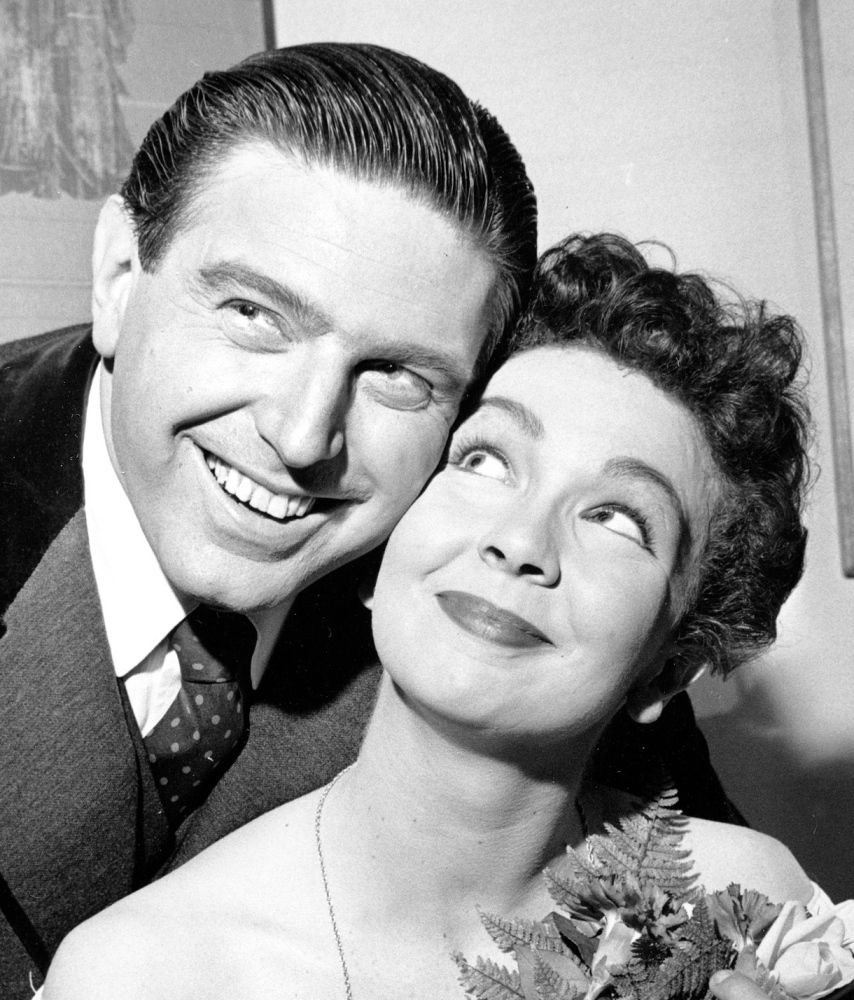NEW YORK — Theodore Bikel, the Tony- and Oscar-nominated actor and singer whose passions included folk music and political activism, died Tuesday morning of natural causes at UCLA Medical Center in Los Angeles, said his agent Robert Malcolm. He was 91.
The Austrian-born Bikel was noted for the diversity of the roles he played, from a Scottish police officer to a Russian submarine skipper, Jewish refugee, Dutch sea captain and former Secretary of State Henry Kissinger. He sang in 21 languages.
“No one loved theater more, his union better or cherished actors like Theo did. He has left an indelible mark on generation of members past and generations of members to come,” Actors’ Equity Association, which Bikel led as president from 1973-1982, said in a statement.
He also appeared on numerous television shows, recorded books on tape, appeared in opera productions and issued more than 20 contemporary and folk music albums.
He received an Oscar nomination for his 1958 portrayal of a Southern sheriff in “The Defiant Ones,” the acclaimed drama about two prison escapees, one black and one white.
The following year, Bikel starred on Broadway as Capt. Georg von Trapp in the original 1959 production of “The Sound of Music.”
But many viewers knew him best for his portrayal of Tevye in stage productions of “Fiddler on the Roof.” Although he did not appear in the original 1964 Broadway version or the 1971 film, he played Tevye more than 2,000 times on stage from 1967 onward. His latest film was a documentary about interpreting the work of Yiddish author and playwright Sholem Aleichem, who wrote “Fiddler on the Roof.”
Among his film roles, he played the grumpy Soviet captain in the Oscar-nominated 1966 Cold War comedy “The Russians Are Coming, The Russians Are Coming.” He played Kissinger in the TV movie “The Final Days.”
A prolific recording artist, Bikel also helped found the Newport Folk Festival in 1959. He recorded 37 albums and sang with Pete Seeger and The Weavers.
Bikel, who referred to himself as “the poor man’s Peter Ustinov,” was 80 when he received a star on Hollywood’s Walk of Fame in 2005. Martin Landau and Ed Asner were among the fellow actors who flanked Bikel during the ceremony.
“Finally, Theo gets his due!” Asner said.
He spent much of his youth in Palestine and was fiercely devoted to supporting Jewish causes, as well as the Democratic Party and human rights groups. He was one of six leaders of the American Jewish Congress arrested while protesting in 1986 outside the Soviet embassy in Washington, D.C. over that government’s restrictions on letting Jews leave the country.
Bikel did not consider his activism at odds with his work as a performer. He said he thrived on the variety in his life.
“Professionally, I can count three or four separate existences,” he said.
Born in 1924, in Vienna, Austria, Bikel moved with his family to Palestine when he was a teenager.
Bikel, who became an American citizen in 1961, said in his autobiography, “Theo: The Autobiography of Theodore Bikel,” that one of the key moral dilemmas of his life was whether to return to his homeland in 1948 when Israel declared its statehood.
He remained in London.
“A few of my contemporaries regarded what I did as a character flaw, if not a downright act of desertion,” he wrote. “In me, there remains a small, still voice that asks whether I can ever fully acquit myself in my own mind.”
Bikel was among the guests on Sept. 13, 1993, when Israeli Prime Minister Yitzhak Rabin and Palestine Liberation Organization chairman Yasser Arafat sealed their historic peace agreement with a handshake on the White House lawn.
Bikel is survived by his wife, Aimee Ginsburg; sons Rob and Danny Bikel; stepsons Zeev and Noam Ginsburg; and three grandchildren.
Send questions/comments to the editors.



Success. Please wait for the page to reload. If the page does not reload within 5 seconds, please refresh the page.
Enter your email and password to access comments.
Hi, to comment on stories you must . This profile is in addition to your subscription and website login.
Already have a commenting profile? .
Invalid username/password.
Please check your email to confirm and complete your registration.
Only subscribers are eligible to post comments. Please subscribe or login first for digital access. Here’s why.
Use the form below to reset your password. When you've submitted your account email, we will send an email with a reset code.